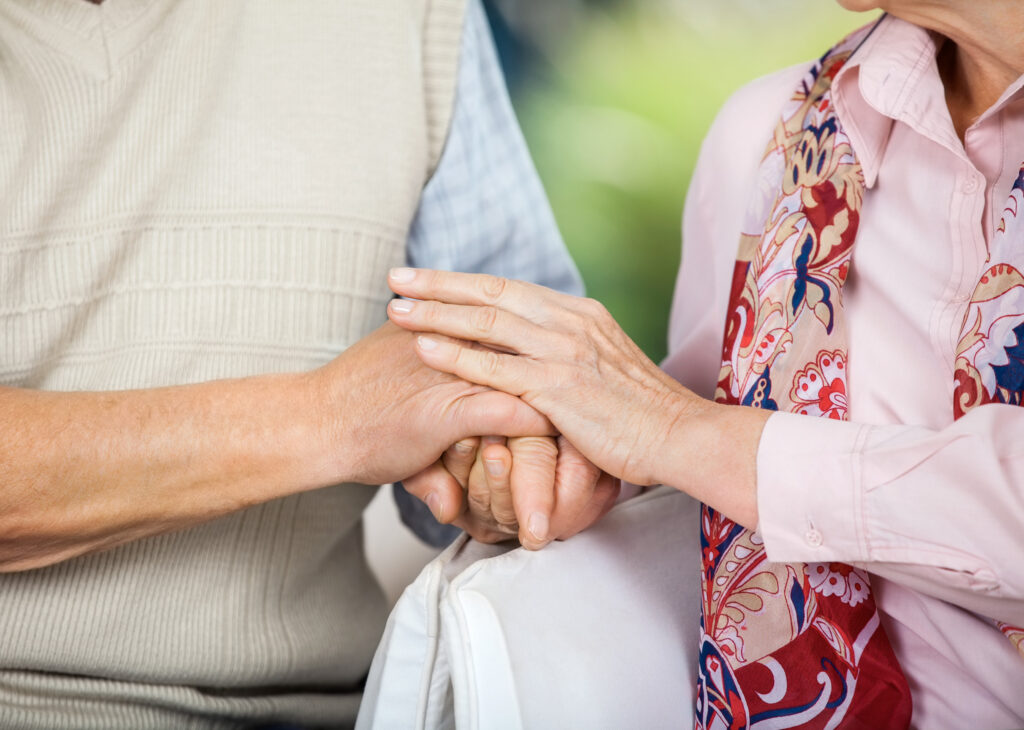As seniors age, maintaining independence becomes one of the most important aspects of their lives. The ability to live in one’s own home, make personal decisions, and enjoy daily routines without feeling overwhelmed by limitations is a significant factor in their overall well-being. However, as physical or cognitive challenges arise, many seniors find themselves in need of support. In-home care offers a way for seniors to continue living independently, without sacrificing the assistance they require for everyday activities.
In this blog, we’ll take a closer look at what a typical day looks like for a senior receiving in-home care from HomeChoice Network, and how this type of care helps preserve Independence for Seniors. From morning routines to social activities, in-home care helps seniors live comfortably and safely in their own homes while offering peace of mind to families.
Morning: Starting the Day with Comfort and Care
For many seniors, the morning can be a challenging time. Whether it’s due to stiffness, arthritis, or other age-related conditions, getting out of bed and starting the day can feel daunting. This is where in-home care plays a vital role.
Gentle Assistance with Morning Routines
A caregiver from HomeChoice Network begins the day by helping the senior get out of bed and move around safely. Caregivers can assist with basic tasks like dressing, bathing, and grooming, ensuring that the senior feels refreshed and ready to take on the day. The aim is to provide support without taking away the senior’s ability to make decisions about their preferences, whether it’s choosing an outfit or selecting a morning routine.
The caregiver offers a helping hand for tasks that have become more difficult due to limited mobility or cognitive changes but does so in a way that doesn’t compromise the senior’s autonomy. For instance, if the senior prefers to pick out their clothes, the caregiver is there to provide assistance, but only if needed.

Medication Management
Many seniors take medication as part of their daily routine. A HomeChoice Network caregiver ensures that medications are taken on time and in the correct dosage. While some seniors may have the ability to manage this independently, others may need reminders or assistance. Caregivers also monitor for any side effects, ensuring that the senior’s health is being properly managed from the start of the day.
Mid-Morning: Enjoying Daily Activities and Maintaining Independence
Once the morning routines are complete, seniors are often ready to engage in their favourite activities. Whether it’s reading, walking in the garden, or enjoying a hobby, in-home care allows seniors to participate in life’s pleasures without worrying about physical limitations or the risk of accidents.
Personal Hobbies and Interests
A senior may enjoy engaging in hobbies like knitting, painting, or reading, and the caregiver ensures they have everything they need to continue these activities. Having a caregiver on hand allows the senior to focus on their passions, knowing that assistance is available when needed. The caregiver may offer help with tasks that have become difficult—like turning pages for a senior who has difficulty with their hands or setting up art supplies—but the goal is always to support the senior’s enjoyment without interfering with their sense of independence.
If a senior enjoys spending time outdoors, the caregiver may assist with outdoor activities, ensuring that they can safely navigate their yard or take a walk in the park. The idea is to encourage as much independence as possible, with the caregiver offering support when necessary.
Social Interaction and Mental Stimulation
Social interaction is a key component of mental well-being for seniors. Whether it’s talking to a caregiver, chatting with family members over the phone, or participating in a community group, these connections help seniors feel engaged and mentally stimulated. HomeChoice Network caregivers understand the importance of emotional and social health, and they help foster meaningful conversations and companionship throughout the day.
If the senior enjoys socialising outside the home, caregivers may assist with transportation or accompany the senior to social events, doctor’s appointments, or family gatherings, all while ensuring that the senior feels supported and engaged.
Afternoon: Maintaining a Routine and Staying Active
As the day progresses, the senior’s routine continues to support their overall well-being. Afternoon activities often revolve around maintaining physical and mental health.
Physical Exercise and Mobility Support
Staying active is essential for seniors, and it can often be challenging to do so without support. Caregivers from HomeChoice Network assist with light exercises, stretching, or even just taking a short walk. These activities help seniors maintain mobility, flexibility, and strength, which are vital for preserving their independence.
Caregivers can also assist with mobility aids such as walkers or wheelchairs, ensuring that the senior can move around safely. If the senior requires assistance with balance or walking, the caregiver provides support while encouraging the senior to remain as active as possible.
Meal Preparation and Nutrition
Proper nutrition is an essential part of healthy aging, and a well-balanced diet helps seniors stay strong, healthy, and independent. A caregiver may assist with meal preparation, ensuring that the senior enjoys healthy, nutritious meals that are in line with their dietary needs. Many seniors are on specific diets due to health conditions such as diabetes, hypertension, or heart disease, and caregivers work closely with families and healthcare providers to ensure the right nutritional balance.
Seniors are also encouraged to participate in meal planning and preparation when possible, as this keeps them involved in the process and fosters their sense of independence.

Evening: Winding Down with Relaxation and Peace of Mind
As the day comes to a close, it’s important for seniors to unwind and relax. HomeChoice Network caregivers help seniors transition from daytime activities to evening routines that focus on comfort and relaxation.
Evening Routines and Support
Evening routines often include help with bathing, getting into comfortable clothes, and preparing for bed. Caregivers assist seniors in a way that respects their autonomy, allowing them to maintain as much independence as possible while providing the physical assistance needed for a comfortable night’s rest.
Caregivers may also help seniors with setting up their living space for bedtime—adjusting pillows, covering them with a blanket, or ensuring that any mobility aids are within reach. By assisting with these tasks, caregivers help seniors feel secure and relaxed as they settle in for the night.
Family Communication and Updates
Seniors Family Peace of Mind is a priority at HomeChoice Network. Families are kept updated on their loved one’s day-to-day well-being through regular check-ins and communication. This ensures that family members can remain involved and informed about their loved one’s needs, which helps them feel confident in the care being provided.
Building a Strong Relationship with Caregivers: Trust and Communication
A key element of in-home care that often goes unnoticed is the relationship between the caregiver and the senior. At HomeChoice Network, we recognize that building trust and communication is essential for creating a comfortable environment where seniors feel supported yet independent. Our caregivers take the time to get to know each senior personally, understanding their preferences, habits, and interests. This personal connection helps seniors feel more at ease and willing to accept assistance when needed.
The relationship also extends to families. HomeChoice Network fosters transparent communication, providing family members with regular updates on their loved one’s health and well-being. This consistent communication ensures that families can trust the care their loved ones are receiving and stay informed about their daily routines, changes in health, or any other concerns.
By cultivating a strong, respectful relationship between caregiver and senior, HomeChoice Network enhances the quality of care, boosts the senior’s emotional health, and gives families Seniors Family Peace of Mind. Knowing that their loved ones are not only receiving care but also forming meaningful connections with their caregivers helps families feel confident in the care being provided.
The Benefits of In-Home Care for Preserving Independence
Throughout the day, HomeChoice Network caregivers provide support that enables seniors to maintain their independence while still receiving the help they need. The goal is to assist with daily tasks and responsibilities without taking over, allowing seniors to live their lives as they wish.
By promoting Independence for Seniors, in-home care helps seniors maintain their dignity, comfort, and well-being. It also ensures that families can enjoy Seniors Family Peace of Mind, knowing that their loved one is safe, cared for, and still able to enjoy life on their own terms.
Take the Next Step Towards Preserving Independence for Seniors
In-home care is an invaluable service that offers seniors the opportunity to maintain their independence while receiving the support they need. HomeChoice Network provides comprehensive care that helps seniors lead active, fulfilling lives at home. From morning routines to evening relaxation, our caregivers support seniors in every aspect of their day-to-day activities, helping them maintain independence and dignity.
If you’re ready to learn more about how HomeChoice Network can support your loved one, visit www.hchoicenet.com today. Let us help you preserve Independence for Seniors and provide Seniors Family Peace of Mind with our professional, compassionate care services.







